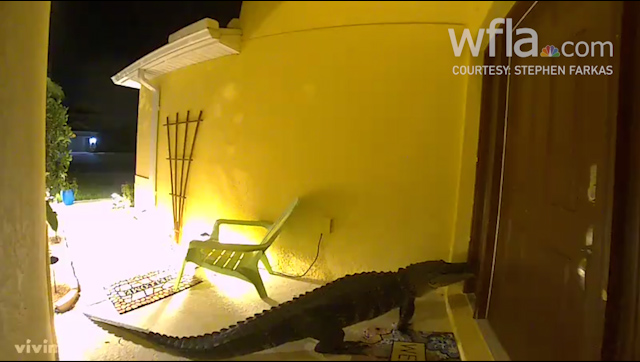ST. PETERSBURG, Fla. (WFLA) — U.S. Representative and Democratic gubernatorial candidate Charlie Crist held a news conference on making solar power more accessible for residents and how some businesses in the solar industry and Florida environmental leaders are allegedly trying to make solar power more expensive and harder to access.
Crist was joined by Florida Rep. Anna Eskamani (D-FL47) and Susan Glickman, the Florida Director of the Southern Alliance for Clean Energy, as well as Bryan Beckman from Suncoast Sierra Club and Scott McIntyre, the CEO at Solar Energy Management in St. Petersburg.
“There’s an effort underway in our state that would dramatically restrict the ability of Floridians to tap into the power of the sun to power their homes. That’s bad for consumers, it’s bad for jobs, it’s bad for our environment and it’s certainly bad for Florida,” Crist said. “There’s been a tremendous increase in the number of Florida home owners who want to put solar panels on their roofs in recent years. And for good reason. homeowners want to reduce their monthly electric bills. and they want to protect our environment by using renewable energy to power and cool their homes. It’s created thousands and thousands of jobs. For people of all political backgrounds, its’ a win-win-win.”
Crist said some people want to prevent access to residential solar power from being available.
He was referring to recent coverage in the Miami-Herald and Floodlight that revealed efforts by Florida Power and Light to propose and sponsor legislation that would eliminate financial incentives for homeowners to install solar power generators at their homes.
The legislation is sponsored by Florida Senator Jennifer Bradley, R-FL5. In the 2022 legislative session, the bill is titled SB 1024, or “Net Metering.”
The coverage, according to Crist, showed that FP&L had donated to the bill’s sponsor and sent lawmakers the proposed legislation before it was presented.
The bill in the legislature, if passed, would allow FP&L to pay less for excess energy generated by homes using solar power, and put solar out of reach for middle-class families, according to Crist.
Crist said the anti-solar legislation is just another example of how utilities rig the system against the people of Florida in favor of corporations, and “Tallahassee is marching on.” He said solar power issues are non-partisan, and as governor he would fight utility companies to prevent them from getting unfair rate increases and make it easier to install solar power for homeowners.
Rep. Eskamani said Eric Silagy, the CEO of FP&L, had been using a pseudonym email address to communicate with “operatives” to push fake political candidates.
“The CEO played a key role in talking to these operatives,” Eskamani said. “When we talk about political corruption, this is one of the worst and most egregious examples in Florida history.”
Eskamani was talking about a recent election loss where a Democratic candidate lost by just 32 votes. She said it’s frustrating for Floridians because “they’re only met by politicians who consent to corporate greed” and are funded by FP&L checks. Eskamani said it’s made worse by residents not having many power options, where consumers can’t just stop paying their electric bill without having their power shut off.
“What we can do as elected officials and as community advocates and as business officials is hold FPL accountable,” Eskamani said. “And hold accountable the politicians and the consultants who participate in this corruption, not only undermining our democracy and making it harder for Florida families to pay their bills on time and to express competition in the energy market.”
Eskamani pledged to say no to rate hikes, no to corruption, and no to corporate hacks and corporate greed. She called on Floridians and state lawmakers to stand together against these issues.
McIntyre said the proposed changes to net metering for solar power would set back the solar industry in Florida about 30 years, and eliminate almost 30,000 jobs in the state.
“Net metering in Florida is the only policy in place which allows for the promotion of solar power in the state of Florida,” McIntyre explained. “The state of Florida has no energy policy, which means we are adrift, we have no plan for the current or future of our energy sources. Currently the state of Florida gets 70% of its energy from natural gas from the state of Texas. So, the use of solar power is in its infancy in the state of Florida.”
McIntyre said the portion of Florida east of the Mississippi River gets the most solar radiant energy, but only about 3% of Florida’s energy is made with solar power. Acknowledging climate change, McIntyre said the only policy in place that allows for easy implementation of solar power is the current net metering law. He said that’s the law the power companies want to stop, removing “the benefit of solar power in the state.”
“If they pass this draconian change to net metering,” McIntyre said. “The net bill cost for solar will make solar power not affordable for both homeowners and commercial property owners. So the return on investment will be terrible, and so thus people will not buy it. That’s the reason why the power companies want to change net metering. Because they know the business model, it’s called the triple bottom line: People, profit, planet. The profit part will not work, the internal rate of return will not work. Because they’re going to charge a monthly fee for the new net metering law, so consequently across the the country and especially in Florida, they’re pushing for these changes to net metering.”
Beckman spoke after McIntyre, and shared his experience switching to solar as a Florida resident and how the proposed legislation will put affordability out of reach for lower-income families.
“It’s been fantastic when I look at my energy bill each month,” Beckman said. “It’s like $13 each month.” Beckman said he’d switched to solar four years earlier. “So it’s been a fantastic situation for people like myself so far, but I’ll tell you, if this proposed legislation goes through, it really does make it unaffordable. I was fortunate enough to buy my solar up front, but I know enough from my efforts across the county of Pinellas, it will make it unaffordable for people that are middle and low-income.”
Beckman said that many middle and low-income families are financing their solar power. He’s referring to the Florida PACE program, which provides financial means for homeowners to finance solar installations similar to how a home is financed. For many homeowners, Beckman said the monthly cost is the main deciding factor.
“It purely becomes a matter of a dollar per month figure that gets put in front of them by an installer. If this legislation goes through in any form,” Beckman said. “Those numbers just make no sense for a homeowner to try to finance that solar, and essentially pay more on a for-month basis than what they’re paying for electricity today.”
Beckman said the math doesn’t work, and it would prevent families from having affordable access to solar power and would “basically stop” the people from financing their solar. He said it’s critical that the law doesn’t go forward, since it would bring “home solar installation to a screeching halt,” slowing down the larger penetration that lets homeowners and businesses to be part of the solution to emissions and pollution problems. Beckman said the law would also prevent residents from having more choices on who powers their homes and remove competition.
“At least with solar, it’s an opportunity for us to make that choice, but it needs to be financially attractive,” Beckman said.
During the question and answer portion of the event, Crist spoke about how he’d work to prevent legislation like what’s been proposed from passing, if he were governor. He also said he would select consumer advocates to the Florida Public Service Commission, to keep the influence and benefits for power companies out of the commission and keep it focused on helping Florida residents.
Responding to the change in the number of registered Republican voters now passing the number of Democratic voters, Crist said candidates must “sound the alarm, get the word out and fight back” to work on issues that are important regardless of party.
“My god, we’re the Sunshine state for crying out loud and yet the state of New Jersey offers more incentives as it relates to solar power than the sunshine state of Florida,” Crist said. He said as a U.S. Congressman, he’s worked to extend tax credits that encourage solar development and encourage the industry to grow.
Crist squarely put the blame on Florida Gov. Ron DeSantis for not being on the side of consumers, and being on the side of companies instead, leading to businesses donating to his campaign. Crist said the issue is larger than solar power, but also on property insurance, where he said rates are “skyrocketing” and thousands consumers are being cut off from their policies due to the current administration.
“Ron DeSantis is just not a friend to consumers, he doesn’t care about people, he cares about looking forward into 2024 and going down all of these red-hot Republican raffles as it relates to trying to secure a nomination in 2024 and it’s wrong,” Crist said. “He’s more concerned about Iowa voters than Florida people. And for a governor of Florida to take that perspective, it’s unconscionable. Florida’s a special place and she deserves better.”
WFLA has reached out to Gov. DeSantis’s office for comment on the proposed legislation, and reached out to the governor’s reelection campaign regarding Rep. Crist’s comments.


